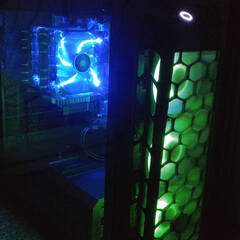Copying a large file has random freezes on Windows??
-
Featured Topics
-
Topics
-
1
-
1
-
Matty91 ·
Posted in Troubleshooting0 -
kowareta ·
Posted in Troubleshooting0 -
3
-
Sanedish ·
Posted in Folding@home, Boinc, and Coin Mining0 -
1
-
3
-
nyaro ·
Posted in Graphics Cards8 -
0
-
-
play_circle_filled

Latest From ShortCircuit:
Feels like I'm wearing nothing at all... - Shokz OpenFit Air















Create an account or sign in to comment
You need to be a member in order to leave a comment
Create an account
Sign up for a new account in our community. It's easy!
Register a new accountSign in
Already have an account? Sign in here.
Sign In Now